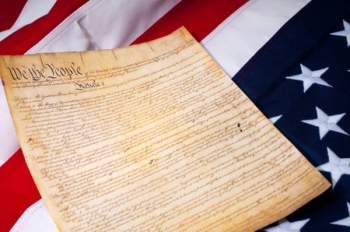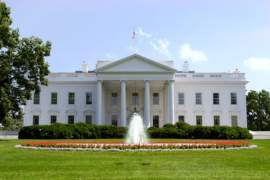
22nd Amendment

Popular In Constitution
Purpose Of Lifetime Appointment And Pros And Cons Enumerated Powers Bicameral Legislature Background Article 3 Of The Constitution We The People 1st Amendment Who Wrote The Constitution Judicial Review Equal Protection Clause 5th Amendment 10th Amendment Three Fifths Compromise
What is the 22nd Amendment?
The 22nd Amendment to the United States Constitution sets term limits for the elected President of the United States. Passed by the United States Congress on March 21, 1947, the 22nd Amendment was later ratified by the requisite number of states on the 27th of February in 1951.
The 22nd Amendment states that no personal shall be elected to the office of the President more than twice and no person who has already held office—or acted as the president of the United States—for more than two years of a term shall be elected President more than once.
The primary motive of this amendment was to establish term limits; the 22nd Amendment to the United States Constitution states that no US President shall be elected to more than two terms. Furthermore, the 22nd Amendment limits the maximum time an individual may be serve as President to 10 years, if the person should succeed to the office.
Original Text of the 22nd Amendment to the United States Constitution:
Section 1. No person shall be elected to the office of the President more than twice, and no person who has held the office of President, or acted as President, for more than two years of a term to which some other person was elected President shall be elected to the office of the President more than once. But this article shall not apply to any person holding the office of President when this article was proposed by the Congress, and shall not prevent any person who may be holding the office of President, or acting as President, during the term within which this article becomes operative from holding the office of President or acting as President during the remainder of such term.
Section 2. This article shall be inoperative unless it shall have been ratified as an amendment to the Constitution by the legislatures of three-fourths of the several States within seven years from the date of its submission to the States by the Congress.
History of the 22nd Amendment:
Historians cite George Washington’s unwillingness to seek office for a third term as evidence that the founding fathers saw the two-term limit as conventional. The constraint was instituted to impede the development of pseudo monarchy.
In addition to Washington, Thomas Jefferson also contributed to the two-term limit by suggesting an office without restraints could yield a “a President for life”, which would obfuscate the premise of a democratic government.
NEXT: Twenty Third Amendment





















